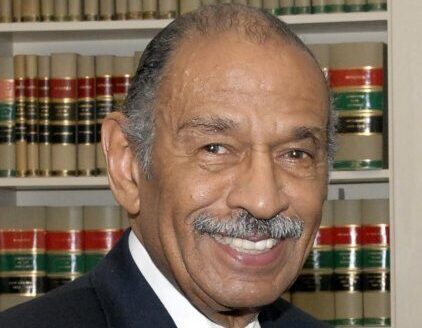Famed poet Phillis Wheatley was stolen at a young age from Africa and bought by wealthy Boston merchant John Wheatley. His children tutored and nurtured Phillis’ thirst for knowledge and creativity, leading her to write poetry that was so impressive that people found it difficult to believe that she, a Black slave girl, could possess enough sentience and skill to craft herself. Without her enslavement, we probably wouldn’t have known her story, but she also wouldn’t have been traumatically snatched from her loved ones and shipped off to a new world. The supposed conundrum of saving Phillis from herself and the Africanism that plagued her is present in her writings:
Twas mercy brought me from my Pagan land,
Taught my benighted soul to understand
That there’s a God, that there’s a Saviour too:
Once I redemption neither sought nor knew.
Some view our sable race with scornful eye,
“Their colour is a diabolic dye.”
Remember, Christians, Negroes, black as Cain,
May be refin’d, and join th’ angelic train.
The spread of the particular brand of Christianity we see today is rooted in the same belief system that Christianity would domesticate or tame the savage African, a perceived universal truth which was shared by abolitionists and slavers alike. Part of taming the savages around the world was to establish whiteness as the head of the power structure under the ordainment of God. It is no secret that much of this is still done today via mission trips.
MMA fighter Michael Chandler recently sat down with interviewer Shawn Ryan and opened up about how met his wife, Brie. Essentially, Chandler chipped his tooth in college; Brie’s father mentored the man (who was also in Chandler’s bible study) who saved Chandler’s smile. On Brie’s Instagram, she shares a picture of them in Jamaica…on a mission trip.
It is obvious from the almost three-hour interview that Chandler is a self-proclaimed man of God. He also talks about his two adopted children, Hap (7) and Ace (2), who are Black. A five-minute clip of the interview has since gone viral, with many attacking some of Michael’s comments about how he is raising his Black sons, while others, mostly white, fail to see the big deal. In all fairness, the entire clip of Chandler speaking about his sons is a bit more nuanced in further detail, but that does not mean the sentiments, which did come from his own mouth, are not indicative of a widely held ideology by many white parents who adopt transracially, and the people who heap praise upon them for their deed.
The offending comment, “I’m not raising Black children, I’m raising children. I’m not raising Black men, I’m raising men,” is repeated verbatim during the interview as if it had been rehearsed enough to be an established phrase used with blind pride. He later clarifies that he is cognizant of his sons’ skin color and that being a good person transcends race and gender, and to that point, he is correct, but the language gets very dicey and equivocating. When asked how he handles difficult situations, Chandler diverts to religion and how God ordained and created their family to look the way it does, including his children’s skin color. It is a bit self-serving to say that God wanted two Black women, at least one only 17, to give up their babies for adoption. Adoption is a traumatic experience for the children and biological parents, no matter how fancy you dress it up, but God ordained that trauma so that a rich white family could take better care of them instead of using his omnipotence to provide for the mother and child but if adopting a son is good enough for Joseph, then I’m sure it’s good enough for Chandler.
When asked if there is anything he is anticipating or worried about, he says, “no,” but does agree that he needs to be more educated on certain subjects, including history, and acknowledges more than some of his white friends with biological children (they need to be more educated, as well).
Chandler added that they chose his son’s school based on the diversity and based on the number of adopted children that go there. It is not completely implausible that a millionaire could send his son to a school with a ‘diverse’ population, but him knowing how many adopted children attend his son’s school is either bullsh*t or indicative of a trend where he lives. It is doubtful that many parents would disclose the adoption status of their small children unless it were not glaringly obvious.
There is a great possibility that the Chandlers are genuine about their desires for their family, but that does not mean there are not potentially harmful blind spots. The hope is that they can be culturally sensitive and invested enough to pursue information or interests that are pertinent to the differences they have with their children instead of just the similarities, which he solely describes as beautiful. While white infants are a bit harder to come by in adoption circles, it is hard to fathom that a millionaire who has access to resources most don’t could not adopt a white child with greater ease, so it does make one question their motives. What kind of sainthood do you hope to get from adopting the unadoptable?
In an announcement about the adoption of their youngest son, Ace, Chandler talks about how he and his son prayed for a sibling with skin like his, which also makes you wonder: 1. Did that really happen? 2. How often is Hap interacting with other Black children? 3. Did you really pray that hard if dark-skinned Black boys are the least likely to be adopted in a system where Black children make up almost a quarter of the population? 4. So your BLACK son wanted you to have another BLACK son?
Many comments on the viral video clip show exactly why transracial adoption deserves scrutiny. The assumption that Black children are far better off in white families simply because they are in nice clothes on Instagram or that Black parents are naturally inept via a stereotypical assessment relies on the same racist ideology that justified so many Black children being ripped from their mothers during slavery. It is important that the Chandlers prepare their Black sons, not just their sons, for the white world beyond the Bible. A perusal of the comments section of their Instagram, on most of their posts featuring their children, the comments are littered with negativity; some comments border on being innocent yet still ignorant, while others are downright cruel, and it is questionable how many prayers will deliver their sons from the agony they will feel if they ever read them.
Whether they are asking repetitively if the boys are adopted or leaving racial epithets, the comments are still on Brie’s page, and the comments are still open. There is no amount of internet accolades that should allow children to have to endure such scrutiny, whether they can see it or not.






Some other commenters on the clip begged whether it was better for the children to remain in foster care, added with thinly veiled racism that indicts Black adults for not doing a better job at parenting or adopting. It is a fact that Black children are overrepresented in the foster care system (including adoption) as a whole, but that does not mean that Black people are not adopting. Most Black adoptions are done informally and are kinship adoptions. Many Black people know a grandma who is raising their grandchild; many of us know several. Dorothy Roberts, author of Torn Apart: How the Child Welfare System Destroys Black Families and How Abolition Can Build a Safer World, tells Time.com that the majority of Black children are removed from the home because of reports of neglect, not abuse, which could be something like not having enough food, and instead of being provided with financial assistance, children are removed from the home and placed with someone who is then paid to foster them.
She explains that “[o]ne of the most striking findings in a recent study is that more than half of all Black children will experience a child-welfare investigation by the time they reach age 18—53%.” Many Black potential parents also report roadblocks or distrust of the system as reasons they have not successfully adopted.
Transracial adoption is not an inherently bad thing. There are plenty of success stories, but there are plenty of tragedies, too. While we may not know the particulars of their interactions, Angelina Jolie seems to be a great example of transracial adoptions gone right. Her daughter, Zahara Jolie-Pitt, whom she adopted from East Africa, attends an HBCU and from many accounts, Jolie seems actively invested in her children’s roots, including her sons Maddox and Pax, who are from Cambodia and Vietnam, respectively. On the flipside, there is Michael Oher, who is suing his foster parents, Leigh Anne and Sean Tuohy. He alleges that the couple tricked him into thinking their conservatorship was adoption papers. The story of their ‘adoption,’ and him being subsequently drafted into the NFL was the subject of a white savior Hollywood’s wet dream, The Blind Side, starring Sandra Bullock and Tim McGraw, as the Tuohys.
When white children are adopted by white parents, the parents don’t get the honor of everyone knowing they did such a pure and noble thing. When the children look too much like them, strangers won’t know how great of a person they are. Due to racist stereotypes, Black, dark-skinned boys are the least likely to be adopted. When the children are deemed the least lovable, a lily-white, attractive and athletic young white Christian couple adopting them is going to always be held in the highest regard as an example of what love and sacrifice look like, whether that is the parents’ intentions or not.
Adopting Black children without adopting practices to help dismantle white supremacy is nothing but putting a bullet wound on a band-aid, and when it comes to white evangelism, which takes root in white supremacy, that is like asking a problem to fix itself. Chandler mentions that while acknowledging that his children’s skin color is black, it is hard for him not to see himself in them.
If he truly believes that we are all made in God’s image, then what does that look for little Black boys who look nothing like their savior?








